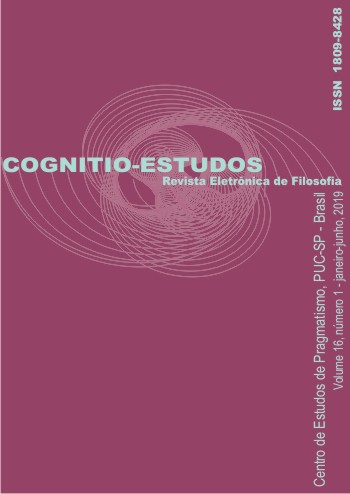Probability, risk, and pragmatism: an outlook on Peirce's insurance firm model
DOI:
https://doi.org/10.23925/1809-8428.2019v16i1p67-73Palavras-chave:
Insurance, Pragmatism, Probability, Risk, Uncertainty.Resumo
C. S. Peirce used to discuss the validity of synthetic inferences by comparison with the way that insurance companies predict the extent of their risks collectively, even though they cannot predict particular losses. This topic appears in at least three essays from different periods of Peirce's works, indicating that it involves an important issue during the development of pragmatism. By the way, it is important to note that Peirce’s view on this matter was gradually improved over the course of those works: initially, it is practically only mentioned, later it takes the form of a full argument, and finally it was presented as a mathematical model whose discussion is quite complex. I begin with Peirce’s puzzling assertion that “each of us is an insurance company”, trying to explain how his frequentist conception of probability implies the famous statement that logic is rooted in the social principle. Next, I intend to show how such an issue sheds light on the reformulation of the maxim of pragmatism, which was initially based on psychological considerations, but which became grounded in the field of logic. This shift may be better understood as one considers the relation between the validity of synthetic inferences and securitization procedures. I conclude that some obscurities of the first Harvard lecture of 1903 derived from Peirce´s expertise on a subject matter whose discussion was still incipient at his time.

